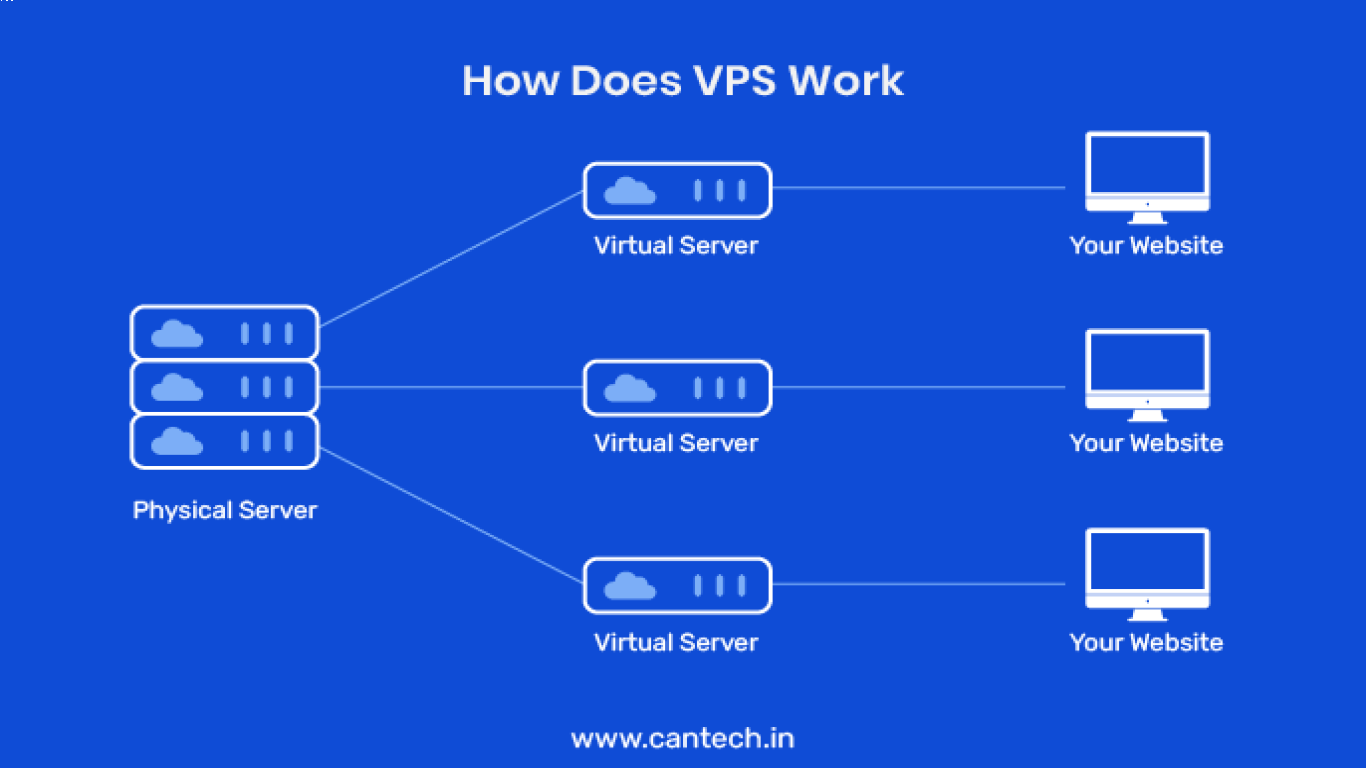What Is a VPS and How Does It Work
What Is a VPS and How Does It Work?
Yo, folks! If you're diving into the world of web hosting, you've probably stumbled upon the term VPS or Virtual Private Server. You're in the right spot if you're asking, "What is a VPS and how does it work?" Keep reading, because we're going to break it down nice and easy, just like a chat over coffee in a trendy Jakarta Selatan café.
The Basics: What Exactly is a VPS?
Alright, so let's start with the basics. VPS stands for Virtual Private Server. Think of it like having an apartment in a high-rise building. Sure, the whole building is one massive structure (that’s your server), but your apartment is completely yours to manage, decorate, and mess around with (that’s the "virtual" part).
A VPS is a middle ground between shared hosting and dedicated hosting. In shared hosting, you're basically roomming with a bunch of other websites in one single space. In dedicated hosting, you have the whole building to yourself. VPS? That's having your own apartment – privacy, yet still part of the bigger whole, sharing certain building utilities.
How Does a VPS Work?
Okay, let's pull up our tech sleeves and dig a bit deeper. A Virtual Private Server uses virtualization technology to create this separate “room” or environment on a physical server. There are a few software types for virtualization, like VMware or KVM.
Here's how it goes down:
- Divide and Conquer: The hosting company takes a physical server and slices it up into several virtual servers. Each slice or virtual server acts as if it is a standalone server.
- Dedicated Resources: Every VPS gets its own dedicated resources like CPU, RAM, and storage. And the cool part is, you’re not sharing these with others.
- Operating System Independence: Each virtual server can run its own operating system independently. You could be on Linux while your neighbor runs Windows.
Why Choose a VPS Over Other Hosting?
Choosing a hosting plan is like picking the right outfit. It needs to fit well, look good, and serve the right purpose. Here’s why a VPS might be the designer brand you’re reaching for:
- Performance and Reliability: Since you have your own resources, your website can handle higher traffic loads without crashing like that one time your website collapsed during that big flash sale.
- Customization Freedom: Like dressing up your apartment with funky art, you can install software and applications just how you like them. Total control over your server settings!
- Better Security: With a VPS, you're more secure than basic shared hosting. You're isolated, meaning if the server “neighbors” get attacked, your VPS stays safe and sound.
VPS vs. Shared Hosting vs. Dedicated Hosting
Comparison time, friends! Let's see how VPS stacks up against its fellow hosting types.
VPS vs. Shared Hosting: Shared hosting is budget-friendly but comes with shared resources leading to slower performance and potential security risks. VPS is more flexible and secure, offering dedicated resources but typically costs more.
VPS vs. Dedicated Hosting: With dedicated hosting, you get a whole server to yourself – it’s powerful but pricey, like renting a penthouse suite. VPS is cost-effective, serving up that perfect mix of independence and affordability.
When Should You Consider Using a VPS?
So, when do you swap your shared hosting for VPS? Let’s lay down the signs:
- Growing Traffic: Your website's getting busy, and shared hosting just isn’t cut out for that traffic anymore.
- Enhanced Security Requirements: If you're dealing with sensitive data or running an e-commerce site, you need a secure environment.
- Running Specific Applications: Sometimes, the apps you want to run need that bit more configuration freedom that only VPS can provide.
- Custom Server Configurations: When you need specific server settings that shared hosting can't provide, a VPS is your go-to.
How to Choose the Right VPS for Your Needs?
Choosing the right VPS is like finding the perfect coach at the gym - they gotta understand your ambitions, and how to help you meet them. Here’s what to keep in mind:
- Understanding Your Resource Needs: Get a grasp of how much RAM and storage your site really needs.
- Managed vs. Unmanaged VPS: Do you want full control and responsibility, or do you want your host to handle some technical stuff?
- Check Scalability: If your site’s growing, ensure the VPS can scale with it.
- Customer Support Availability: Make sure the provider offers solid support in case of emergencies.
Conclusion
In a nutshell, VPS hosting is a versatile and powerful solution that offers more control, security, and flexibility than shared hosting. It’s also less expensive than dedicated hosting, making it the perfect choice for growing businesses and developers who need advanced hosting capabilities.
FAQs
Q1: Is a VPS suitable for small businesses? Absolutely! It offers growth potential without a hefty price tag. It’s like buying a bigger closet, knowing your wardrobe will expand.
Q2: Can I run multiple websites on a VPS? Yes, you can host multiple websites on a single VPS, provided your resources can handle them.
Q3: How secure is a VPS compared to shared hosting? VPS is considerably more secure since users are isolated, reducing vulnerability from other server users.
Q4: Do I need technical skills to manage a VPS? If you opt for an unmanaged VPS, yes, some technical knowledge is required. Managed VPS lessens this burden by handling technical aspects for you.
Q5: Can I upgrade my VPS as my website grows? Most VPS providers offer scalable plans, allowing you to upgrade resources like RAM and storage as needed.
Hope this clarifies what a VPS is and gets you pumped about the possibilities. Remember, choosing the right hosting is key to your website's success, as crucial as picking the right hangout is on a Saturday night. So, choose wisely! Peace out!
#vps #whatisvps #vpsworking #virtualprivateserver #vpsguide
